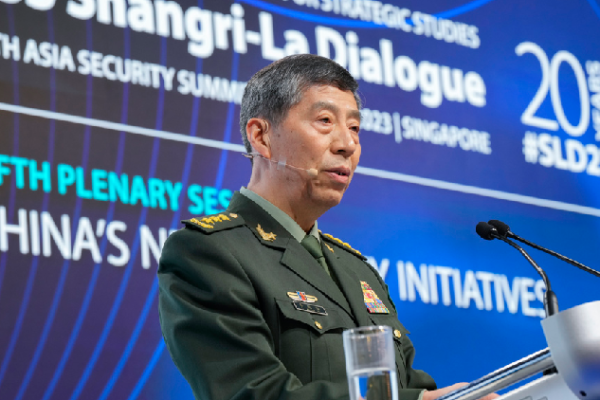North Korea bans 2 South Korean dishes
North Korea has banned two popular dishes from being sold in restaurants because they are South Korean in origin, residents in the country told Radio Free Asia. It’s the latest example of Pyongyang cracking down on the “invasion” of South Korean culture — viewed as decadent and capitalist — into the reclusive communist country. Both dishes — budae-jjigae, a spicy stew that sometimes includes instant ramen noodles, hot dogs and whatever happens to be on hand, and tteokbokki, steamed rice cakes covered in a spicy sauce — have been very popular in South Korea for decades. They did not surface in North Korea until 2017, brought over by a restaurateurs attached to a department store operated jointly with Chinese companies, the residents said. Another food popular in the South that recently spread to the North, samgyeopsal, or barbecued pork belly slices, is not yet subject to the ban, they said. In recent years, South Korean culture — movies and TV shows, clothing and hairstyles, slang, humor and even dance moves — have been seeping into the North. South Korean TV shows and other media are smuggled into the country on thumb drives and watched widely — though in secret. In 2020, North Korea passed a law called the Rejection of Reactionary Thought and Culture Act to keep these things from spreading. Now it appears to have its sights on these foods. “Sales of tteokbokki and budae-jjigae at the marketplace have completely stopped since the 15th,” a merchant from the northern province of Ryanggang told RFA Korean on condition of anonymity for personal safety. “The city police and the market management office have declared that if anyone is caught secretly selling those foods, their store will be shut down.” She said that restaurant managers who sold the dishes were under investigation, and that police took measures to prevent their sale in a food court at a local department store. “This is not simply a measure taken only in Ryanggang Province, but also to all restaurant networks and market food stands across the country, including Pyongyang,” the merchant said. “People are well aware that the sale of tteokbokki and budae-jjigae is prohibited because they are South Korean foods.” Created by division All three of the dishes appeared in South Korea after the division of the country at the end of World War II and the 1950-53 Korean War that effectively made the division permanent. Budae-jjigae literally means “army base stew,” and was borne out of a time of scarcity in the South. It was made from packaged food items that were past their expiration date, but still edible, such as hot dogs and SPAM, that were discarded by U.S. Army bases and reclaimed by hungry South Koreans out of necessity. These days in the South, the ingredients are procured by more conventional means, at the grocery store or from a wholesaler. Scissors are used to cut samgyeopsal at a Korean barbecue restaurant. At the marketplace, tteokbokki costs 3,000 won (12 US cents) and budae-jjigae costs 6,000 won (25 cents), according to the source. In department stores tteokbokki costs 15,000 won (62 cents) and budae-jjigae costs 24,000 won ($1). For context, rice, considered a luxury in North Korea, costs 9,500 won (43 cents) per kilogram (2.2 pounds). The intellectual said there was considerable opposition from business owners and residents to the crackdown, and many protested that the ban makes no sense when American and Western food items like hamburgers and sandwiches are not targeted by bans. “The position of food vendors and residents is that tteokbokki and budae-jjgae are not just South Korean food, but are also food enjoyed by ethnic Koreans in Yanbian,” he said, referring to the Korean Autonomous prefecture in China, home to an estimated 620,000 residents of Korean descent. “Residents say that there is no ideology in the food, but the authorities are only punishing powerless vendors for no reason.” We are : Investigative Journalism Reportika Investigative Reports Daily Reports Interviews Surveys Reportika



